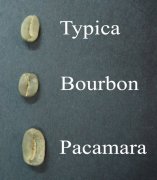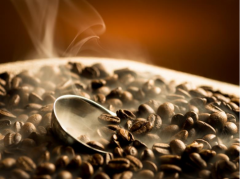The difference between [Fair Trade] and [Direct Trade] of Coffee Raw beans in Ethiopia

For professional baristas, please follow the coffee workshop (Wechat official account cafe_style)
At present, the large cooperatives certified by Fair Trade Organization in Ethiopia are: SCFCU, OCFCU.
Under the grass-roots village organizations, many of the cadres in these village-level cooperatives are farmers and volunteers who are themselves coffee growers.
Most coffee trees are planted around their homes. When they see that the coffee is red, they harvest red cherries. Most small farmers sell coffee cherries directly. For example, if the small-scale merchants who buy coffee need better coffee, they will collect and buy farmers to provide more mature red cherries and give them a better price. This is because they belong to a cooperative system and are processed during collection.
During the harvest period, everyone harvested and concentrated in the simple processing yard of the village, calculated the quantity of cherry fruit sent, and settled the account only when it was sold. Some cooperatives have the function of simple microfinance to provide members with emergency needs.
In Ethiopia, coffee is purchased directly from cooperatives or coffee farms, the price is negotiated after the cup test, and the large cooperatives to which they belong provide follow-up export assistance, which is very different from purchasing directly from exporters or large cooperatives.
First: farmers know who the buyer of their coffee is and can negotiate the price directly.
Second: they can know the evaluation and appreciation of overseas consumers, and most of the bean bakers who purchase [direct relationship] will introduce farmers and their planting land, so farmers are no longer unknown growers. As long as the quality is gradually noticed, it will become the star of tomorrow and make the village or farm famous. Hama Cooperative and Mist Valley is a good example.
Fairtrade can not be applied for by every village cooperative. If you get an application, you will often get the trump card, but for the quality of each batch, Fairtrade does not establish a direct relationship model without quality assurance [direct purchase, direct testing of seasonal samples and direct communication with coffee farmers]. This is a model that has sprung up in recent years and has been recognized by farmers as the best way to sell, because good coffee can be sold at a good price. Farmers can first-hand hear the voices of overseas consumers.
Direct relationship procurement belongs to the close cooperation between farmers and bakers, and both sides need to know the voices of consumers, which is very different from the traditional raw bean merchants who control all the information. of course, it leads to the tension of traders and the backlash of middlemen with vested interests in raw bean countries.
For many overseas buyers (including importers and bakers), direct purchasing is the most expensive and tiring way.
In practice, it is not easy to popularize, unless buyers really pursue high-quality raw beans and are willing to pay good prices to farmers with good coffee, while insisting on transparent transactions are really bean bakers or some kind of socialist supporters.
Choose and buy [Fair Trade Coffee] directly to the exporter to specify the need for fair trade coffee in the producing country, and this can be achieved quickly without the establishment of a lengthy direct relationship. This is most obvious in the German coffee industry, where farmers do not have fair trade certification, that is, they are unwilling to purchase, even real small farmers, producing high-quality coffee is the same. Later, it was found out that the reason for the fair trade of LOGO in Germany is that many consumers already know that they no longer need to spend any effort on direct relationship or direct purchase, because it takes a lot of effort just to explain or educate consumers, so [fair trade coffee] is the resume guarantee of raw beans.
The mission of OCFCU is to enable small farmers to be self-sufficient, to improve the quality of coffee and to establish a cooperative mutual assistance mechanism when food and clothing are safe.
The purpose of its establishment is as follows:
Improve farmers' income
Maintain the quality of coffee
Improve and maintain the sustainable management level of the whole coffee industry
Improve the quality and production efficiency of coffee throughout the country
Control the domestic market
Provide the best service for farmers and become the most trusted supplier for customers.
Important Notice :
前街咖啡 FrontStreet Coffee has moved to new addredd:
FrontStreet Coffee Address: 315,Donghua East Road,GuangZhou
Tel:020 38364473
- Prev

Introduction to the Origin and Award-winning of artificial Coffee Variety Pacamara Pacamara
The exchange of professional baristas please follow the birth of the coffee variety Pacamara (Pacamara) in the coffee workshop (Wechat official account cafe_style) ~ this legendary variety has peculiar plant shape and raw bean shape huge leaves and tall tree shape, the huge raw bean is known as the strange variety of El Salvador ~ he was unknown and was recognized by the judges in the 2003 / 04 COE competition.
- Next

Storage of coffee beans: can I put them in the refrigerator? Can you grind the powder for me?
Communication of professional baristas Please pay attention to the coffee workshop (Wechat official account cafe_style) [storage of freshly baked coffee beans] Grinding or not grinding, and how to preserve coffee beans are nothing but the issues that customers who buy beans are most concerned about. In Taiwan's current environment, raw beans can be preserved for half a year to a year. Baked cooked beans, away from damp and hot places, sealed and stored for two weeks without grinding.
Related
- Beginners will see the "Coffee pull flower" guide!
- What is the difference between ice blog purified milk and ordinary milk coffee?
- Why is the Philippines the largest producer of crops in Liberia?
- For coffee extraction, should the fine powder be retained?
- How does extracted espresso fill pressed powder? How much strength does it take to press the powder?
- How to make jasmine cold extract coffee? Is the jasmine + latte good?
- Will this little toy really make the coffee taste better? How does Lily Drip affect coffee extraction?
- Will the action of slapping the filter cup also affect coffee extraction?
- What's the difference between powder-to-water ratio and powder-to-liquid ratio?
- What is the Ethiopian local species? What does it have to do with Heirloom native species?

